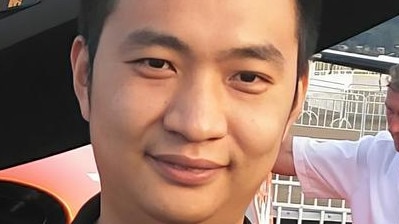PhD candidate and drone researcher Xiaolong Zhu continues fight against WMD finding
Chinese researcher Xiaolong Zhu may be ‘entirely unaware’ of how the Australian government came to the conclusion that he implicated in the proliferation of weapons of mass destruction, but that doesn’t matter for visa rejection, the government says.

Chinese researcher Xiaolong Zhu may be “entirely unaware” of how the Australian government came to the conclusion that he was implicated in the proliferation of weapons of mass destruction, but it can still reject his student visa on those grounds, a government lawyer has argued.
Mr Zhu, a PhD candidate attached to the QUT Centre for Robotics, is continuing his lengthy fight against a Department of Home Affairs decision from October 2020 to reject his student visa application because he “may be directly or indirectly associated with the proliferation of weapons of mass destruction”.
In documents attached to his latest appeal in the Federal Court, the 35-year-old aerospace engineer, who has argued his sensitive drone research has no military application, wrote: “I believe I have nothing in my entire life that could be classified as a severe security item.
“There was no justification or information about how this decision was made,” Mr Zhu wrote in 2023, after challenging a decision by the Administrative Appeals Tribunal to deny his student visa – a challenge he lost.
Since then, Mr Zhu has filed a review in the Federal Circuit and Family Court claiming the finding he was associated with the proliferation of WMD was “invalid”. That review was dismissed by Judge Gregory Egan in May 2024.
He then lodged an appeal against Judge Egan’s decision in the Federal Court, claiming the judge had made a mistake. That decision is yet to be handed down by the Federal Court.
The 2023 affidavit sheds some light on Mr Zhu’s reasons for the long fight against the rejection of his student visa application.
“Because I am certain that the refusal reason (Public Interest Criterion 4003b) for my student visa was unjust and unfair, I persevered in my quest for justice, no matter how difficult it would be,” he said in a late 2023 affidavit.
“I can’t imagine how terrifying my future would be if I stood down with this AAT result.
“PIC 4003b is a serious national security term that will bar me from applying for any type of visa in Australia and possibly other countries such as the US, UK and Canada. This visa refusal record will have a significant impact on my future employment in China. When I am unable to exchange, train, or communicate with colleagues in other countries, I will lose competitiveness in both research and industry.”
He noted, then, his inability to return home, his loneliness, and the tremendous pressure and stress he was under.
In his latest appeal, Mr Zhu’s legal team argued the portion of the Migration Act that deals with the “proliferation of weapons of mass destruction” – which falls on the foreign minister rather than the minister for immigration – “cuts across” the act.
In doing so, it “impermissibly shifts responsibility to the foreign minister; removes the immigration minister’s discretion; denies a visa applicant the right to written reasons; and forecloses any entitlement to independent merits review of the assessment.”
But the ministers for immigration and foreign affairs argued in court that his “association” to the proliferation of WMD did not even need to be a “demonstrated” one, only a possibility.
“It may be … that the applicant is entirely unaware of the matters that lead to a conclusion that such a connection exists.”
The government also said it had no duty to give reasons for administrative decisions, and asked for the appeal to be dismissed.
Mr Zhu arrived in Australia in 2018 on a tourist visa before being accepted into the QUT PhD program to investigate the use of drones in civil rescue operations. In May, QUT said Mr Zhu was continuing his PhD project as a “lawful non-citizen” but did not respond to questions from The Australian on Thursday about the current status of his project.




To join the conversation, please log in. Don't have an account? Register
Join the conversation, you are commenting as Logout